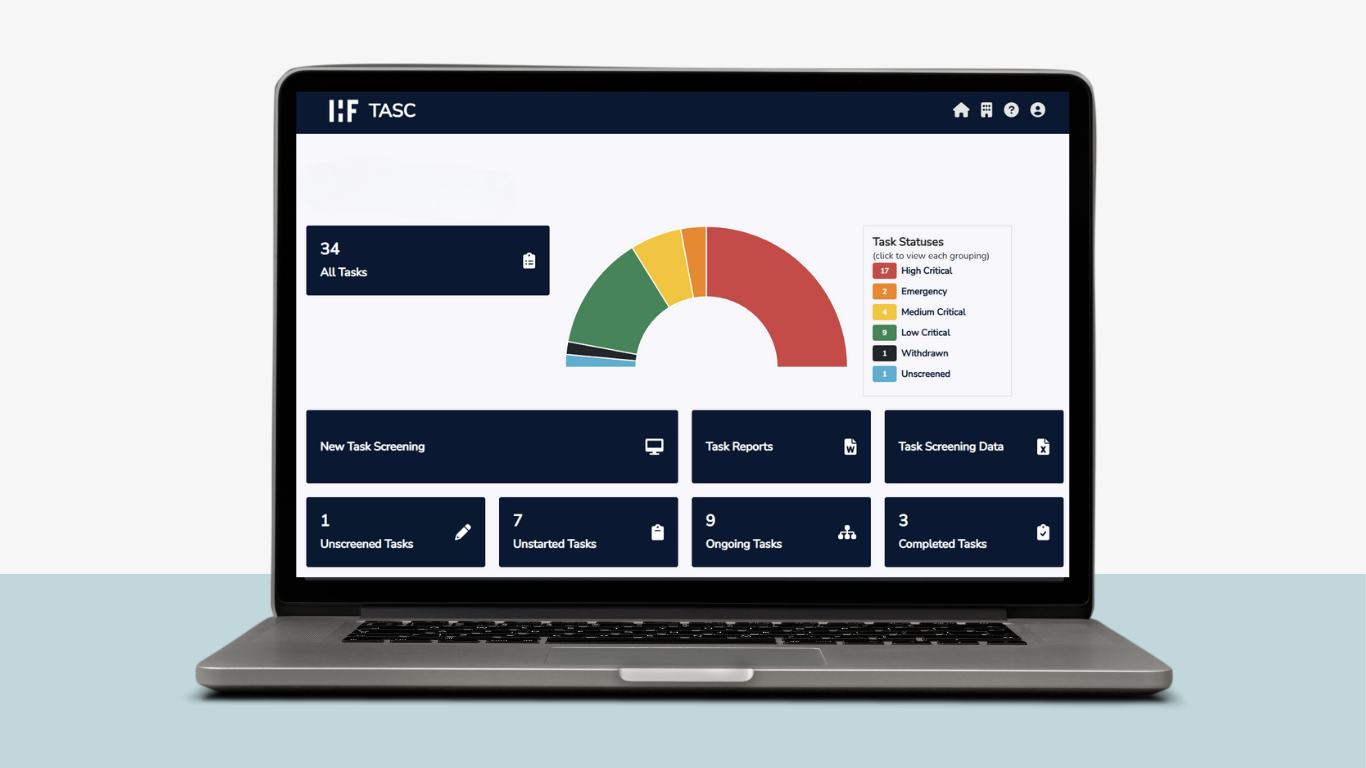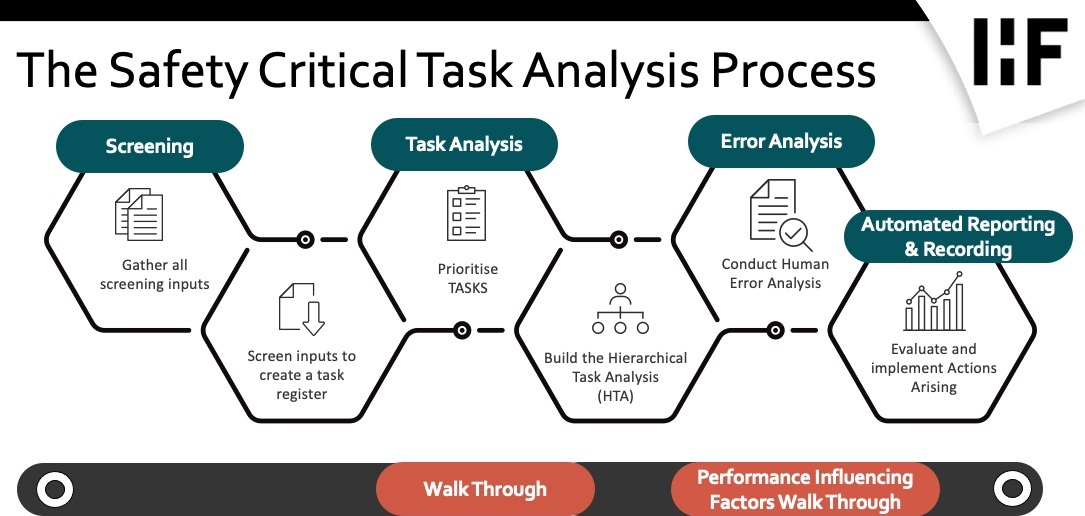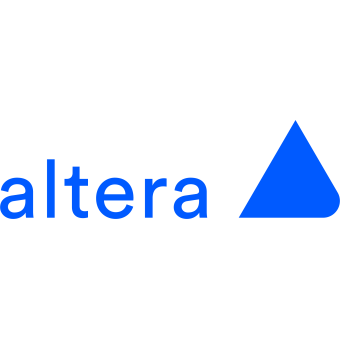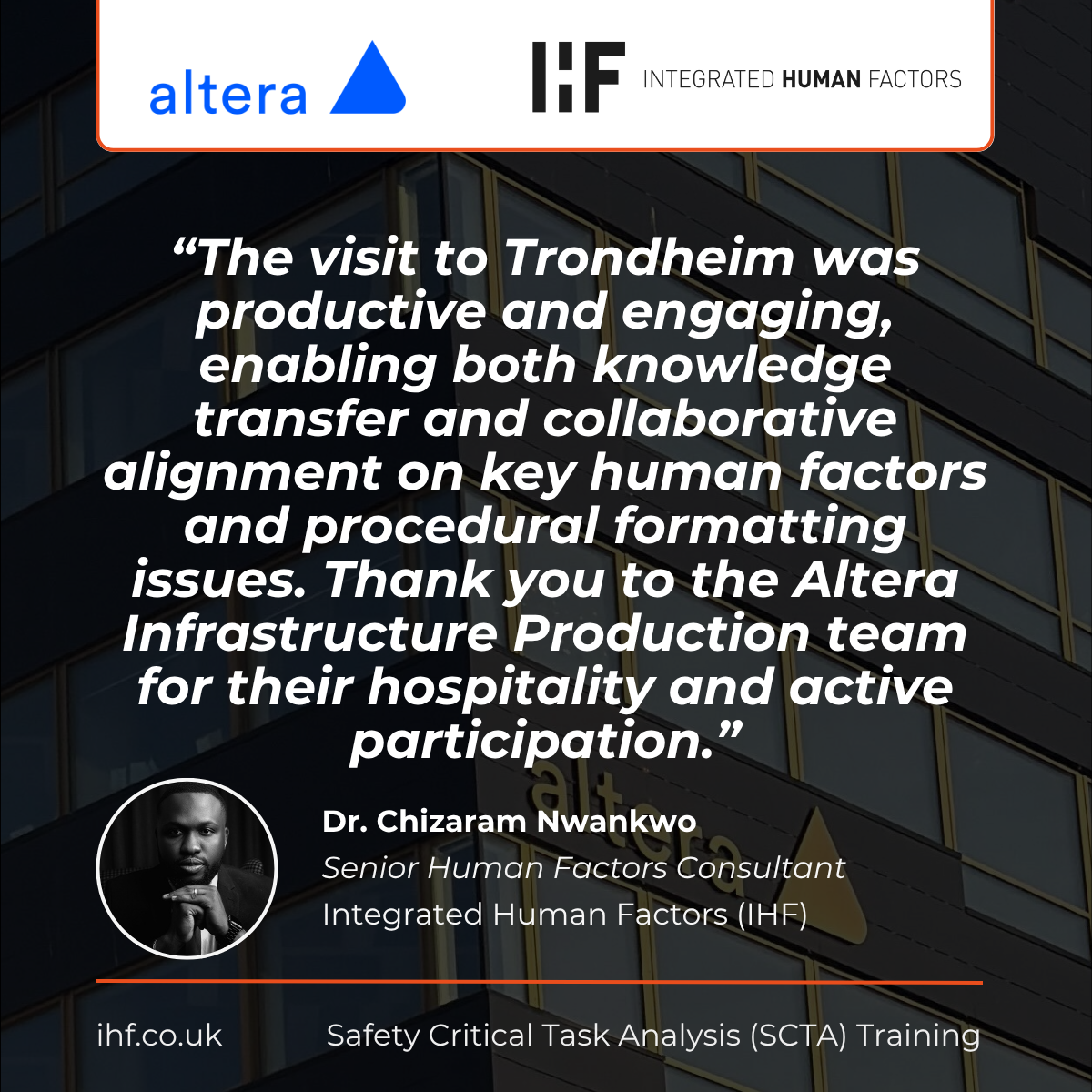Comprehensive and focused SCTA software designed using best practices from human factors experts.
Mitigate accidents and incidents, improve business performance and efficiency whilst meeting COMAH-critical tasks compliance.
Request a DemonstrationAre You Still Using Paper, Spreadsheets and Word Processor Documents to Manage the Safety Critical Task Analysis (SCTA) Process?
In safety-critical industrial operations, dangerous tasks that rely on people to undertake them have been a contributory factor in many accidents, incidents and near misses. Tragically leading to fatalities, injuries and environmental damage. Resulting in disruption to organisations and the public with significant emotional and financial costs. According to the COMAH Competent Authority, operators should use risk assessment and findings from accident and incident investigations to gain a clear understanding of where and when they are vulnerable to human failure (COMAH-critical tasks), how those failures are likely to occur — accounting for the different types of human error — and the Performance Influencing Factors (PIFs) that make those human errors more likely.
COMAH Establishment Requirement
Topic 1 of the COMAH Competent Authority: Inspecting Human Factors at COMAH Establishments Delivery Guide relates to “Managing Human Performance” and Human Factors Specialist Inspectors are likely to inspect and rate this topic first, making the efficient implementation and practice of SCTA an integral part of the general duty under COMAH and The Control of Major Accident Hazards Regulations 2015, Section 5. Paragraph 82 of the L111 Guidance on Regulations states: “Where reliance is placed on people as part of the necessary measures, human factor issues should be addressed with the same rigour as technical and engineering measures.”
Problematic Paper, Spreadsheets and Word Processor Documents
The utilisation of traditional SCTA management tools leads to difficulties — that can crucially lead to hazards — such as auditability and repeatability, disparate, duplicated and scattered documents, incomplete and inconsistent processes, lack of control and visibility, potential data loss, reportability to regulators and the time wasted due to missteps and having to start again.
IHF SaaS TASC™ Solution: Comprehensive and Focused Safety Critical Task Analysis (SCTA) Software Designed Using Best Practices From Human Factors Experts
Designed to mitigate accidents and incidents whilst meeting COMAH-critical tasks compliance — by human factors experts — in line with Chartered Institute of Ergonomics and Human Factors (CIEHF), Energy Institute (EI), Health and Safety Executive (HSE), Human Performance Oil & Gas (HPOG) and International Association of Oil & Gas Producers (IOGP) guidelines, IHF SaaS TASC is a centralised digital SCTA solution that is crucially used for Major Accident Hazard (MAH) safety improvement but also considers personal safety and quality issues.

Meet COMAH-Critical Tasks Compliance
IHF SaaS TASC — that is designed by human factors experts with comprehensive SCTA experience in line with recommend guidelines — enhances and standardises the management of SCTA that is an integral part of the general duty under COMAH and The Control of Major Accident Hazards Regulations 2015, Section 5.
Centralise and Digitalise Your SCTA Practice
IHF SaaS TASC enables an auditable, centralised, repeatable and visible SCTA process — accessed through a web browser, eliminating disparate, duplicated and scattered documents — allowing for a complete, consistent and controlled SCTA practice that can be efficiently reported to regulators with branded templates.

The Safety Critical Task Analysis Process: IHF SaaS TASC
This figure illustrates the SCTA process that IHF follows and advocates. Underlying this approach is our belief in keeping the process as straightforward and impactful as possible. The purpose of IHF SaaS TASC is to provide our clients with everything they need to complete and manage the SCTA process whilst minimising the need for additional expert support. However, due to IHF's expertise in this area we also regularly support clients throughout the SCTA process from the screening process, to the walk through and to the PIFs walk through.
The Benefits of IHF SaaS TASC to You, Your Workers, Your Organisation and the Public
Protect Humans and the Environment From Harm
Effective SCTA implementation and management can help mitigate accidents and incidents that may lead to tragic fatalities, injuries and environmental damage that emotionally, mentally and physically affect workers and the public.
Save Weeks of Lost SCTA Progress
Missing a step or losing data in the SCTA process — that can happen with unstructured paper, spreadsheet and word processor documents management — is hazardous and can also lead to weeks of rectification work.
Days Saved in Crucial SCTA Reporting
IHF SaaS TASC automates many steps of the SCTA reporting process — including creating consistent reports in branded templates — making this less burdensome when required for regulation purposes and these reports are also a vital part of any subsequent ALARP demonstration requirements.
Single Version of the Truth
IHF SaaS TASC centralises, focuses and standardises the crucial SCTA practice through the digital transformation of the process and associated records enabling dashboard visibility and saved time searching for information.
Efficient Task Screening Process
IHF SaaS TASC allows for tailored scoring systems for different disciplines such as maintenance and operations and can be used for other tasks like quality issues and manufacturing and production processes.
Leverage Award-Winning Human Factors Expertise
By investing in IHF SaaS TASC you are also partnering with human factors experts who have a continuous improvement mindset and a passion to optimise workplace safety, demonstrated by the recent achievement of winning the Innovation Award at the Chartered Institute of Ergonomics and Human Factors (CIEHF) Awards 2024.






